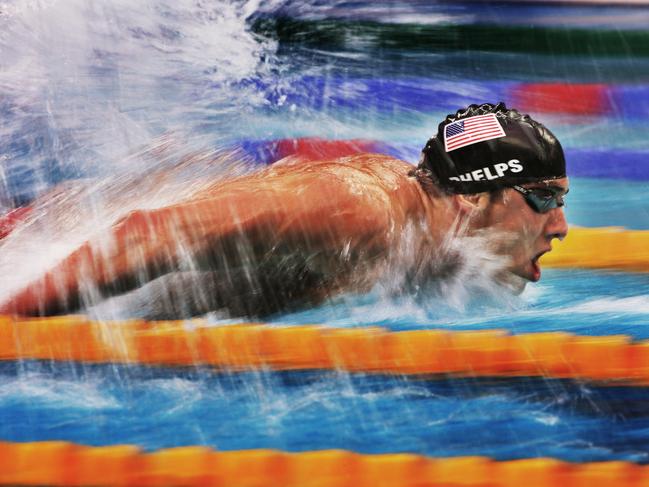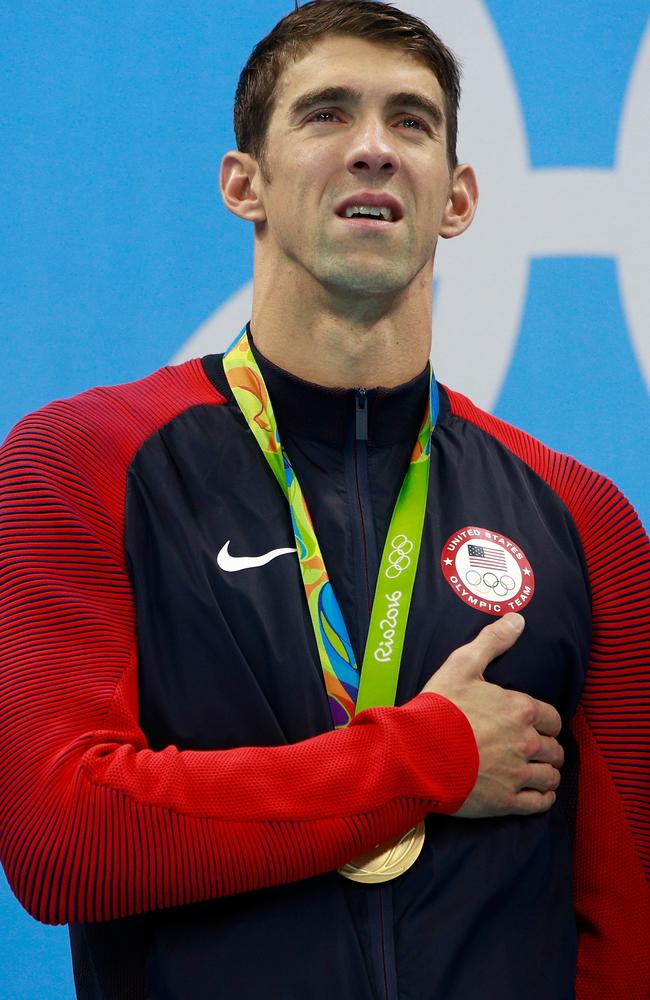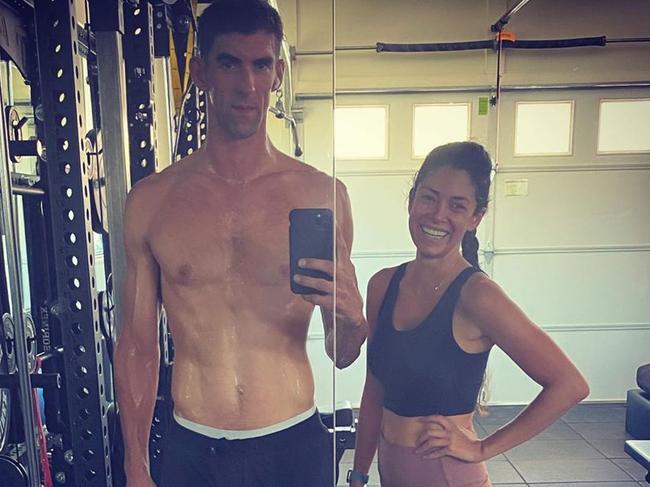Olympian Michael Phelps still struggles but says no one is alone in their mental health battles
Olympian Michael Phelps has revealed how he still struggles daily with his private demons, and how he came back from hitting “rock bottom”.
Olympics
Don't miss out on the headlines from Olympics. Followed categories will be added to My News.
WORLD EXCLUSIVE: The most decorated Olympian of all time, Michael Phelps, has won 23 gold medals, and 28 overall medals, while competing in five Olympic Games. He has had the world at his feet and the world on his shoulders, having experienced mental health challenges since his teenage years.
He struggled with despair after the highs of his Olympic victories. After the 2012 Olympics, Michael said he didn’t want to swim anymore, and at one point even questioned whether he wanted to be alive anymore.
Now a mental health advocate, Michael talks here about the importance of mental health, especially in the COVID-19 environment, as we enter Mental Health Awareness Month in October.
YOU ARE NOT ALONE
– Michael Phelps
OCTOBER marks the start of Mental Health Awareness Month, which is especially timely given the widespread suffering caused by COVID-19.
Now more than ever, we need to recognise the importance of mental health and acknowledge that it’s okay to not be okay.
Beyond the threat to our physical health and safety, COVID-19 has profoundly impacted our social and emotional wellbeing.
To safeguard our physical health, we find ourselves more isolated than ever.
Shutdowns, quarantines, and social distancing disrupt our routines, interrupt our relationships, and shake many of us to the core.
I am thankful my family is safe and healthy, and that we’re together, and I realise that so many others – for reasons beyond their control – are much less fortunate, yet most days I still struggle.

I sometimes feel out-of-sorts, but there are also days when I feel completely lost.
I know I’m not alone in feeling this way, and that it’s okay to ask for help, but when we’re overwhelmed, it’s especially hard to take that first step towards help.
When I was swimming competitively, there wasn’t much talk about mental health – and frankly, it was last thing I wanted to talk about!
I felt my competitors would see any show of feeling or emotion as weakness and would gain an advantage.
Mental toughness was key to my success and I used it to conceal my feelings and emotions; eventually, I discovered that they don’t resolve themselves from within, that they just grow more destructive.


When I hit rock bottom in 2014, the feelings and emotions I had buried for so long overwhelmed me.
For the first time, I realised I couldn’t handle it alone and that I needed some professional help and support.
Acknowledging this reality was a critical step but doing something about it was the real difference-maker — and it was so hard!
I can honestly say that lowering my guard and making myself vulnerable enough to accept the help I needed was the scariest thing I’ve faced. It is also what saved my life.
Opening up inspired me to look within, become more self-aware, and learn more about mental health. I discovered so much about myself, and I even rediscovered my love for swimming.

Subconsciously, I must have known that in doing so I was also sharing my struggles with the world.
To my surprise, I felt a huge weight lift off my shoulders as I spoke, and it seems so ironic to me now that the vulnerability I had always feared would weaken me actually made me stronger.
I know first-hand that it’s okay to show that you’re going through a tough time or that you’re worried – these emotions are what make us human.

I still go through occasional spells of depression, and I’ve come to understand that anxiety is part of what makes me “me”.
Accepting this revealed a path to new meaning and happiness in my life.
And this is why I’m sharing my experiences with you now: In our most challenging times – when our instincts may be urging us to harden our protective shells, keep our heads down and just gut it out – we can find strength by allowing ourselves to become more vulnerable.
By accepting support from those qualified to help us, we can gain a better understanding of ourselves, get through the dark times, and learn to manage our mental health.

For some, that may mean reaching out to a friend to talk though a problem, and for others who may be facing more urgent difficulties, that may mean calling a hotline.
Help is available, and it’s important to seek it from qualified experts.
More generally, our mental health needs to be as high a priority as our physical health.
The appropriate support, tools and treatment be different for everybody, but information, education, and self-awareness are valuable to us all.
I’ve always been big on data and statistics, since it was so essential to the long-term plan my coach and I devised to accomplish my swimming goals.
The data allowed me to believe in the pathway to success, and I considered every little thing that might affect the quality of my performance.
Now, I find myself taking the same approach when it comes to my mental health: I look for data and stats that will help me devise a plan I can believe in.
This is why I’m so hopeful about the future.
I believe that technology, objective data, and statistics will be a game-changer in the area of mental health.

Companies like Australia-based Medibio (on whose advisory board I serve) which is advancing the use of biometric data, such as sleep and heart rate, to provide insights into mental health issues such as anxiety, stress and depression, offer hope that objective, understandable data will one day inform our understanding, detection, evaluation, treatment, and management of mental health.
Technology has also made it easier to access help, which is especially important in this time of COVID-19. It is now possible for people to seek help in different ways: remotely, privately, more affordably.
Lowering the barriers to help-seeking behaviour is such a positive development, given the importance of taking action before problems worsen.
By elevating mental health as a priority, we can begin to understand ourselves better, and focus on those things that influence us positively.

Some things that work for me are talking about what is bothering me, getting good sleep, exercising early in the day, eating right, and allowing for some ‘me time’.
I find that routine – even with little things, like trying to eat meals and snacks at the same time each day – helps a lot.
I think I grew so used to precision and routine in my competitive swimming career that it now provides me with comfort and stability, so I try to maintain daily patterns that enhance my mental wellbeing.
It’s also important to remember that we’re all in this together.
By sharing our thoughts, feelings, and experiences, and listening to others as they do the same, we can ensure people don’t feel alone in these trying times, and that they will always know that it’s okay to not feel okay.
Each conversation chips away at the stigma associated with mental illness and makes it easier for others to seek, find, and accept the help they may need.
After all, we are all human.
For help with emotional difficulties, contact Lifeline on 13 11 14 or www.lifeline.org.au
Originally published as Olympian Michael Phelps still struggles but says no one is alone in their mental health battles
